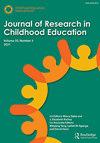混合在家上学:天才教育拼图中缺失的一块
IF 1.3
Q2 EDUCATION & EDUCATIONAL RESEARCH
引用次数: 0
摘要
混合在家上学在伊朗的教育体系中仍处于初级阶段,对许多教育工作者和家长来说仍然是一个谜。本研究旨在运用扎根理论的方法,探讨资优学生在家上学的原因。本定性研究的样本包括15位资优儿童的父母和10位资优专家。通过对专业人士和家长的半结构化访谈收集影响在家上学方式的因素,并采用基于扎根理论的编码方法进行分析(Strauss & Corbin, 1997)。数据分析揭示了资优学生在学校和公共教育中的教育挑战、家长和学生的需求和期望等143个开放码、12个轴向码和3个选择性码。结果表明,伊朗的教育制度不能满足资优学生及其家长的需求和期望;因此,建议教育工作者和家长对这类学生采用混合在家教育。虽然本研究的参与者并没有严格遵循混合学校模式,但研究结果表明,采用混合学校的元素可能对资优学生有利。关键词:教育资优学生;扎根理论;混合型在家教育。致谢作者感谢主办大学的伦理委员会批准本研究,并感谢参与者自愿参加本研究。披露声明作者未报告潜在的利益冲突。本文章由计算机程序翻译,如有差异,请以英文原文为准。
Hybrid Homeschooling: A Missing Piece of the Gifted Education Puzzle
ABSTRACTHybrid homeschooling is still in its initial phase in the Iranian education system and is still a mystery to many educators and parents. This study aimed to explore the reasons for choosing the homeschooling approach for gifted students using a grounded theory method. The sample of this qualitative study included 15 parents of gifted children and 10 specialists in giftedness recruited through purposive sampling. Factors influencing the homeschooling approach were collected through semi-structured interviews with professionals and parents and analyzed by the coding method based on grounded theory (Strauss & Corbin, 1997). The data analysis revealed 143 open codes, 12 axial codes, and three selective codes, including educational challenges of gifted students in school and public education and the demands and expectations of parents and students. The results demonstrated that the Iranian educational system does not meet the needs and expectations of gifted students and their parents; therefore, educators and parents are recommended to use hybrid homeschooling for this group of students. While the participants in this study do not strictly follow a hybrid schooling model, the findings suggest that adopting elements of hybrid schooling could be advantageous for gifted students.KEYWORDS: Educationgifted studentsgrounded theoryhybrid homeschooling AcknowledgmentsThe authors would like to thank the ethics committee of the host university for granting permission for the study and the participants for voluntarily taking part in the study.Disclosure statementNo potential conflict of interest was reported by the author(s).
求助全文
通过发布文献求助,成功后即可免费获取论文全文。
去求助
来源期刊

Journal of Research in Childhood Education
EDUCATION & EDUCATIONAL RESEARCH-
CiteScore
3.10
自引率
0.00%
发文量
27
期刊介绍:
The Journal of Research in Childhood Education, a publication of the Association for Childhood Education International, features articles that advance knowledge and theory of the education of children, infancy through early adolescence. Consideration is given to reports of empirical research, theoretical articles, ethnographic and case studies, participant observation studies, and studies deriving data collected from naturalistic settings. Cross-cultural studies and those addressing international concerns are welcome.
 求助内容:
求助内容: 应助结果提醒方式:
应助结果提醒方式:


